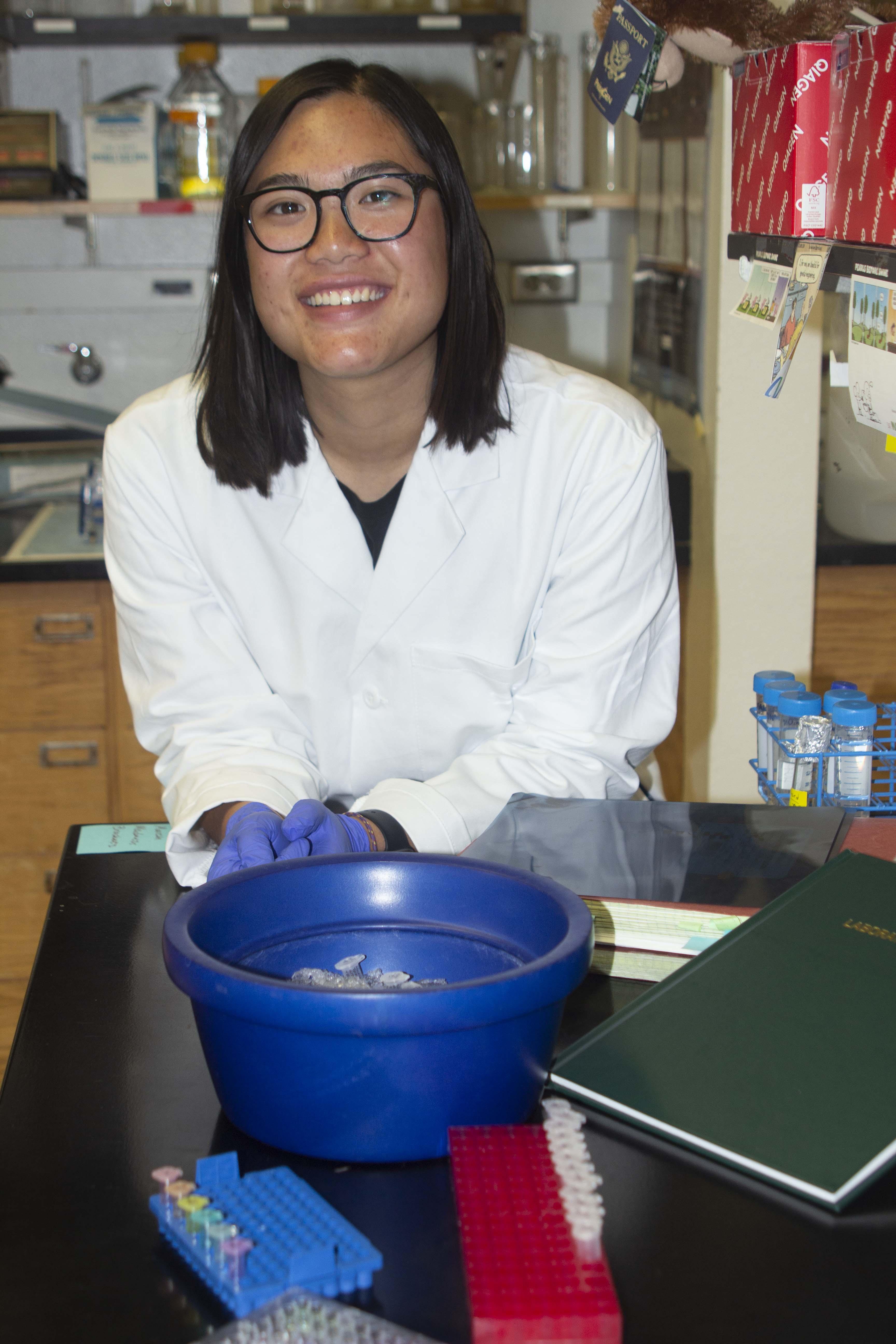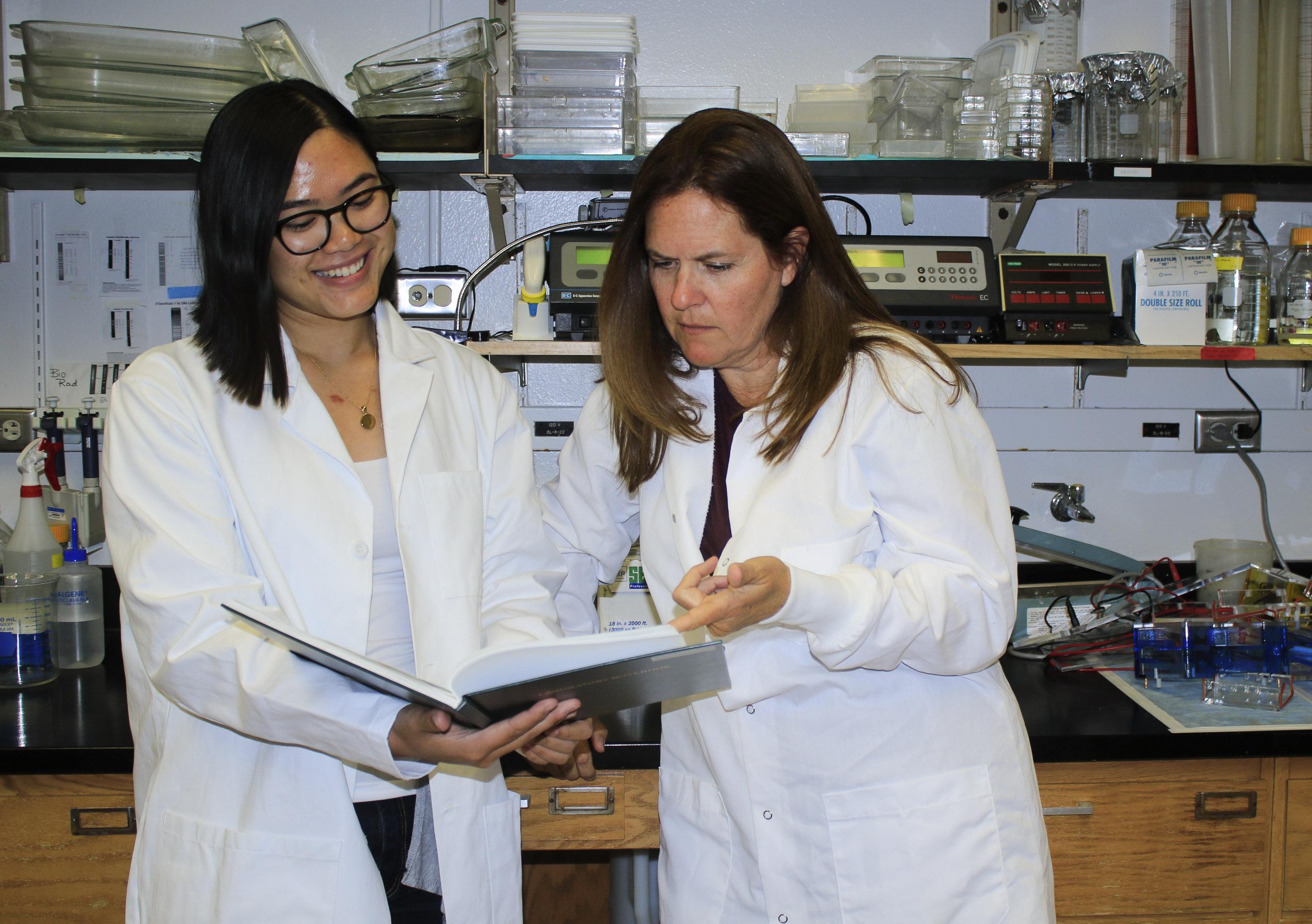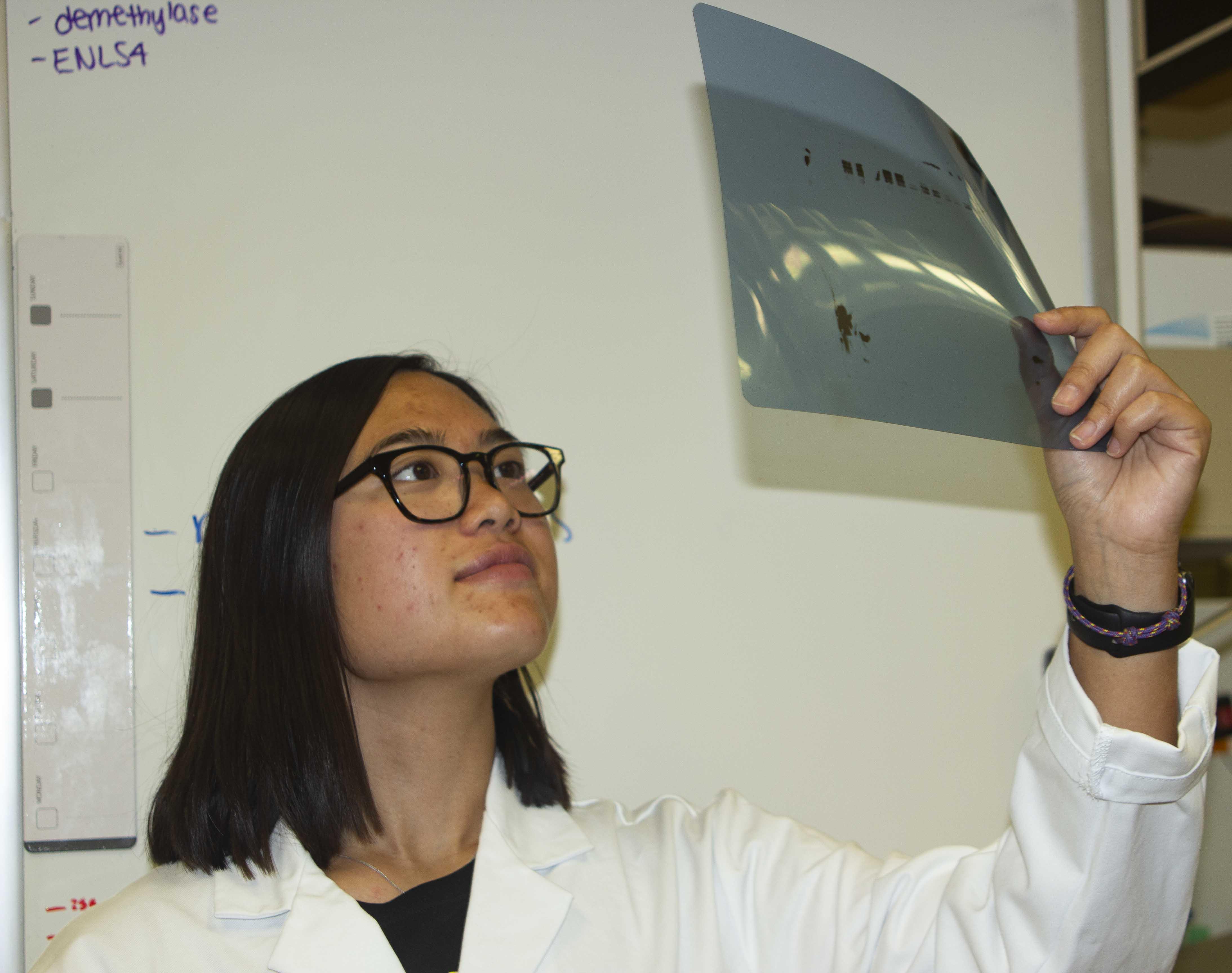Alexa Nguyen Awarded MCB Excellence in Undergraduate Research
 The MCB Excellence in Undergraduate Research Award is presented each spring to an MCB Senior who has demonstrated excellence in their undergraduate research. This year’s award winner, Alexa Nguyen, has been doing research since her freshmen year in college, so it’s no surprise that Alexa was selected as this year’s winner. Alexa is a Flinn Scholar and as part of the Flinn Scholar program, students are paired with a faculty member to mentor them and be a guide during their undergraduate years. Alexa was paired with Dr. Joyce Schroeder and through that relationship, Alexa started working in Dr. Schroeder’s lab doing research. Dr. Schroeder’s lab focuses on breast cancer research and is part of the Arizona Cancer Center. Alexa told me that her time in the lab doing research has been “the most formative experience I’ve had in college.”
The MCB Excellence in Undergraduate Research Award is presented each spring to an MCB Senior who has demonstrated excellence in their undergraduate research. This year’s award winner, Alexa Nguyen, has been doing research since her freshmen year in college, so it’s no surprise that Alexa was selected as this year’s winner. Alexa is a Flinn Scholar and as part of the Flinn Scholar program, students are paired with a faculty member to mentor them and be a guide during their undergraduate years. Alexa was paired with Dr. Joyce Schroeder and through that relationship, Alexa started working in Dr. Schroeder’s lab doing research. Dr. Schroeder’s lab focuses on breast cancer research and is part of the Arizona Cancer Center. Alexa told me that her time in the lab doing research has been “the most formative experience I’ve had in college.”
Alexa is taking a gap year after graduation in May to apply to medical school, and participate in a clinical internship with Pima Heart, a cardiology group in Tucson. "I look forward to working in a clinic and interacting with patients, not to mention exploring other interests of mine before I begin medical school," says Alexa, but being an M.D. is not what she had in mind when she graduated from high school. “Doing research helped me figure out what I wanted to do after I graduated from college. When I was in high school, I was sure I did not want to become an M.D. Through Dr. Schroeder, I met an M.D. to shadow. That experience, and working in research on breast cancer, helped me realize I was passionate about medicine, in particular, oncology.”
Alexa appreciates the knowledge she has acquired in her time doing research. There is the obvious knowledge she has learned, including the scientific process, specifics about breast cancer and therapies, how to conduct a rigorous scientific experiment and how to review and evaluate results. In addition, and as important to Alexa, are the things she’s learned about goal setting, and failure. “Dr. Schroeder stresses clinical relevance when working with students in the lab and having an end goal in mind. I try to frame everything now with an end goal in mind. It keeps me focused and helps me utilize my time on the things that are a priority.” She has also learned that failure isn’t ‘bad’. “In research, there is a high failure rate to experiments which you learn to take in stride. So much has to go right in an experiment, and while the experiment may have failed, it's all information needed to move on. I set my expectations to mostly expecting that nothing will show up, and when it does, it’s really exciting!” Dr. Schroeder observed that trait in Alexa during her years as Alexa’s PI and mentor, “No matter how experiments turned out, I found her pointing out carefully where she could improve next time,” Schroeder observed.
The other aspect of working in the lab that Alexa enjoys is the collaboration with her PI and with the other students and scientists in the lab. “When we get results in our experiments, we review with others in the lab to validate our results and we bounce ideas off each other.”
Schroeder echoed what Alexa learned in the lab, “When Alexa started working in the lab, she immediately excelled in all the ways that indicated I was working with an exceptional student-scientist. She listened well, quickly mastered experimental techniques and understood the big picture.”
Alexa finds working in the lab exciting because there is always the potential for a new discovery and she likes being able to apply what she has learned in her courses to her research. Her courses inform her research and vice versa.
As Alexa reflects back on her four years working in research she likes seeing how much she has learned since her freshmen year. She now understands that you get better at research over time and with practice – “like all things” says Alexa. The skills and techniques Alexa learned in the lab doing research aren’t limited to the lab though. “Working in research where there is a high failure rate is humbling. I used to be more Type A – I had to have a plan for everything and everything had to work out as planned. Doing scientific research taught me that science, and life, doesn't work that way. It's not worth the stress to be in that mindset.” Alexa is now more forgiving of herself. When she first started doing research, she blamed herself when her experiments didn’t work. She realizes now that isn't always true; the scientific process is long, arduous, and mostly doesn’t get the results. She’s learned to develop more realistic expectations in the lab and in life. 
This mindset served her well during her senior year. “My senior year was a series of rejections – things did not go as I had planned! One example is I didn't get in the Peace Corps as I planned. I now realize this was the best outcome for me; being in the Peace Corp wasn't what I actually wanted to do!” Learning to trust that things will work out and practicing being mindful has reduced her stress. Her research experience has given her an additional lens in which to look at things; “will this matter in five or ten years?” is a question she now asks herself when making decisions and when she learns of others’ decisions that impact her.
As Alexa finishes up her research in the lab, we have no doubt that the talents and skills she’s acquired will serve her well in both her professional career and in life!

